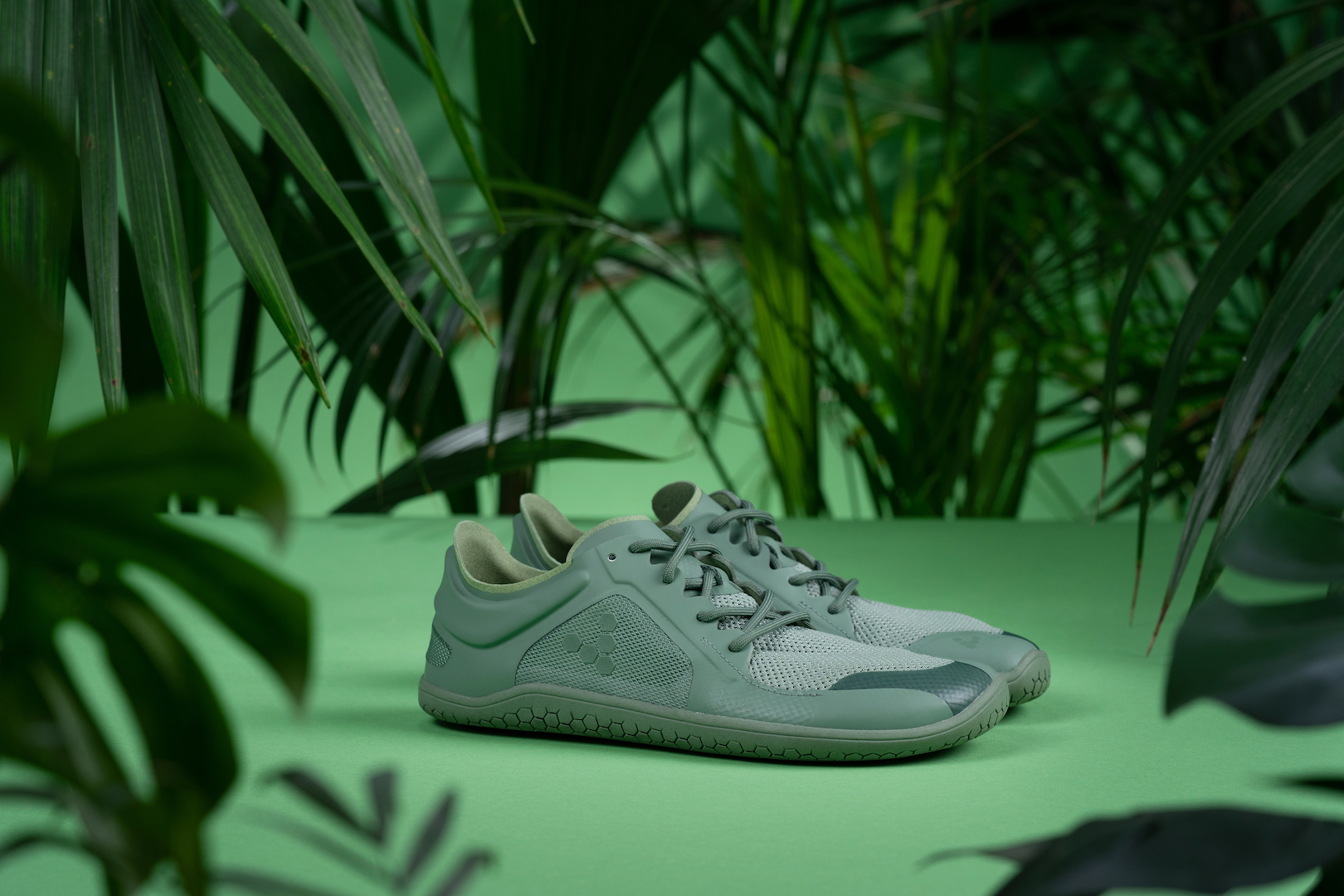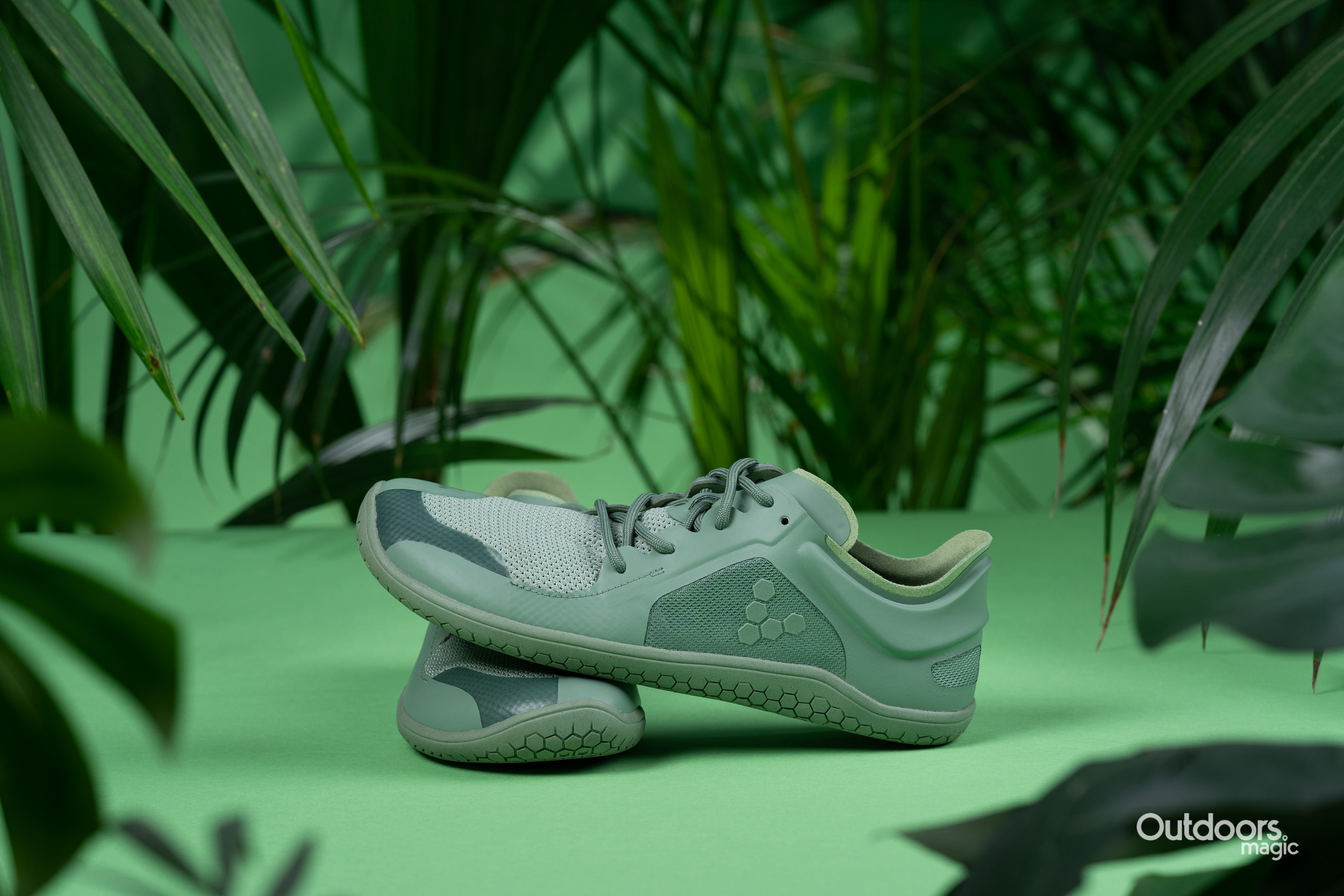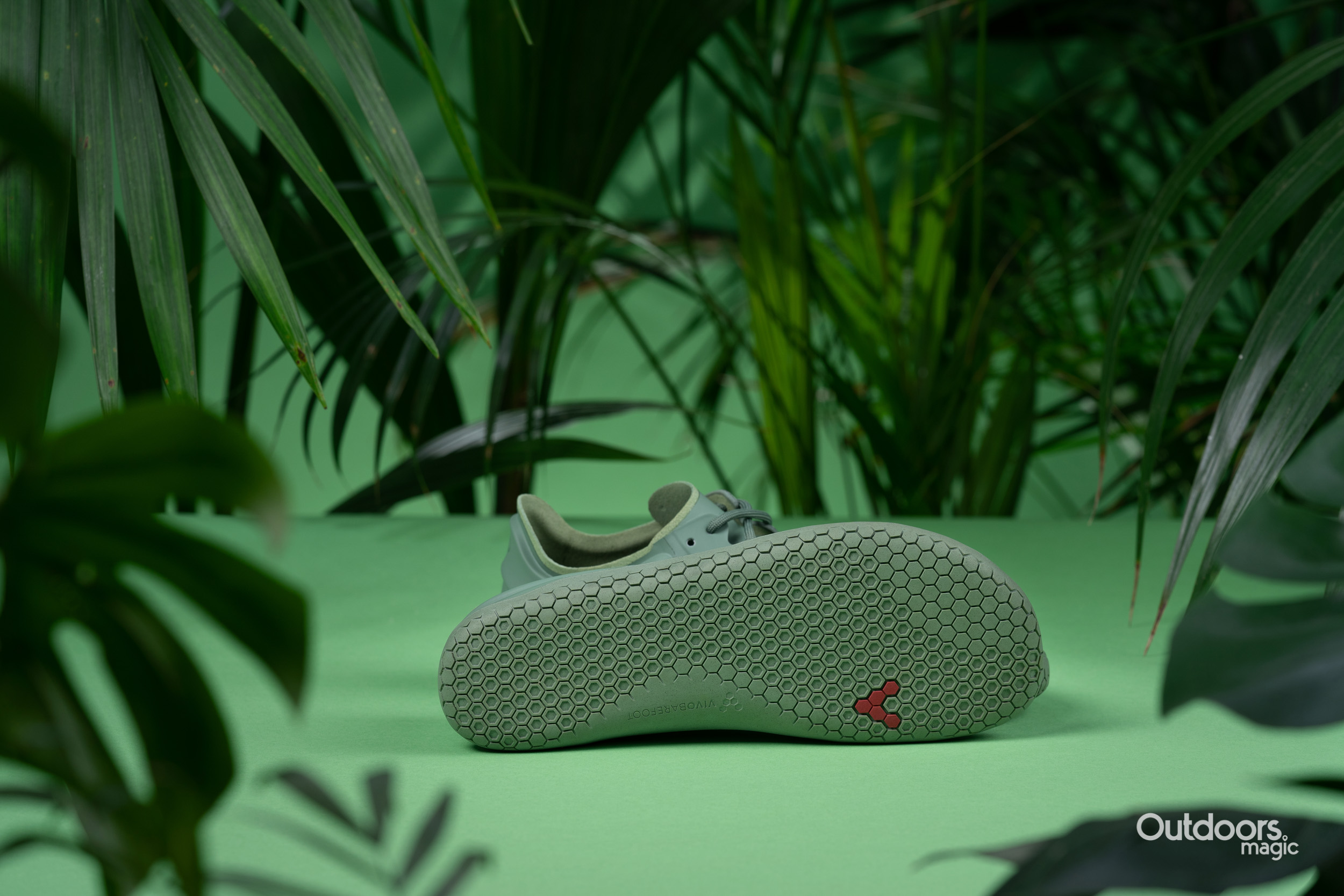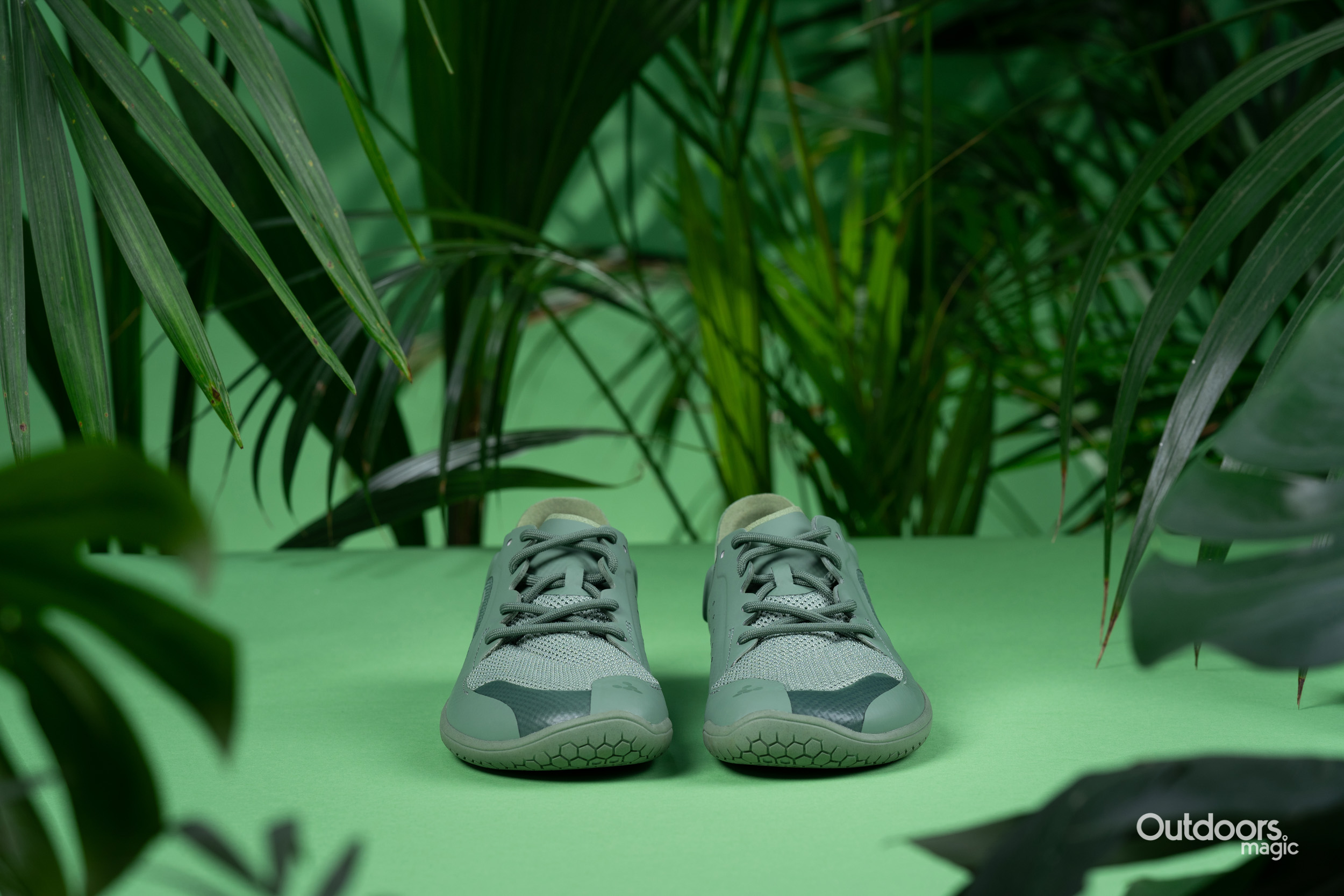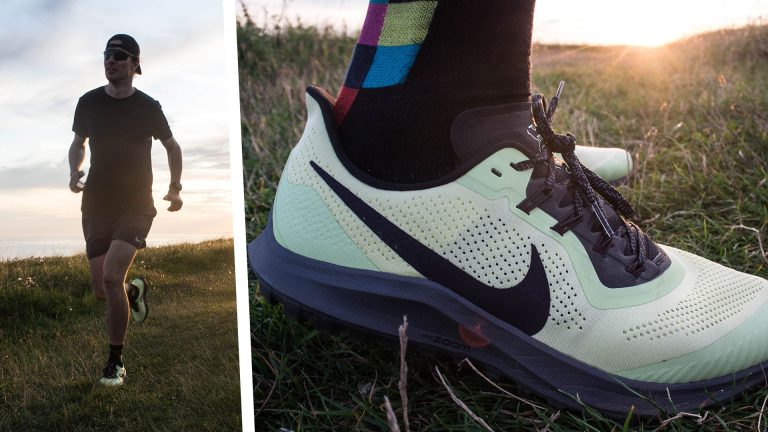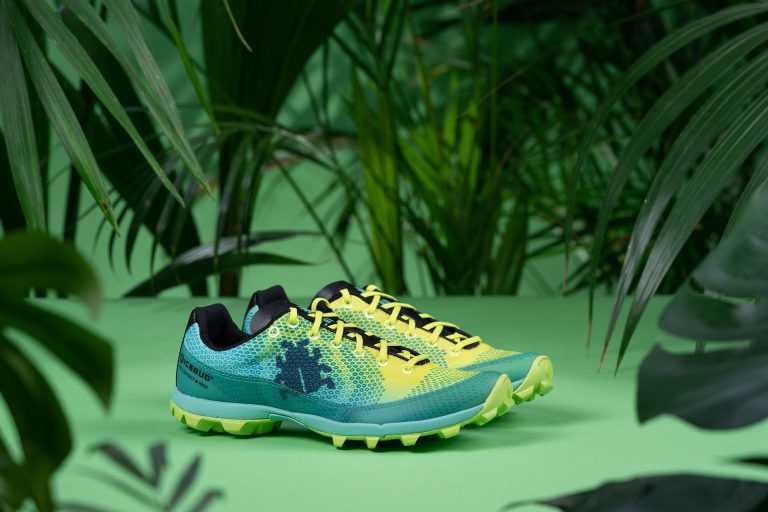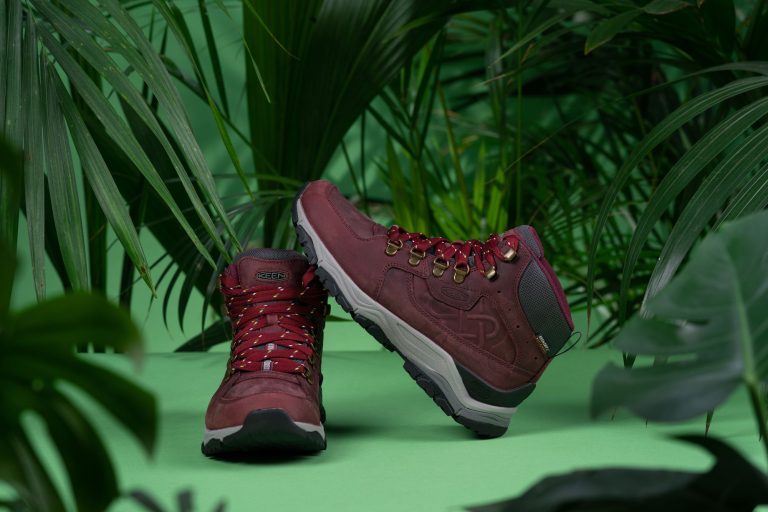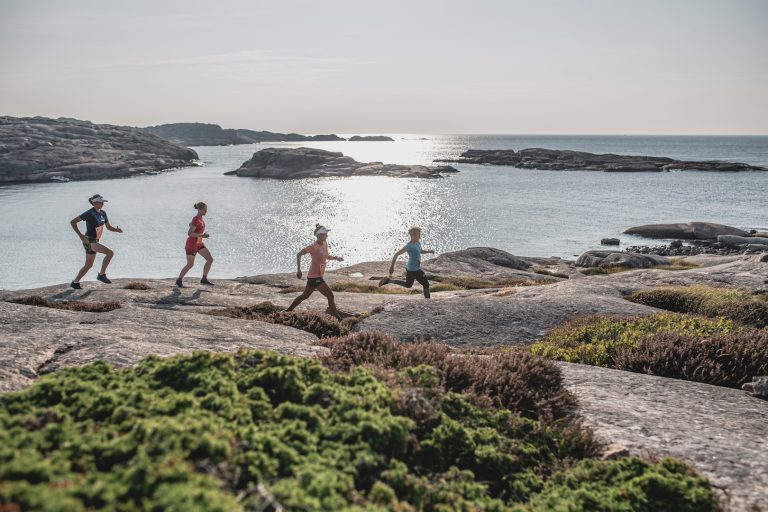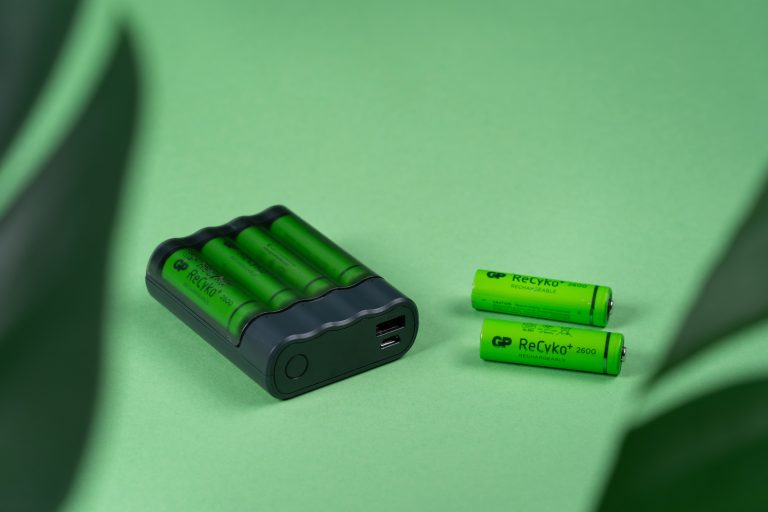Why We Chose Them: Eco-friendly, specialist, lightweight
Price: £120
Weight: 460g (pair)
More info: vivobarefoot.com
This might sound a bit weird, but we can’t help thinking that these running shoes look almost edible. They’re actually heavily plant based, so it’s not as ludicrous an observation as you might think. It’s still ludicrous though – don’t try and eat these.
What we have here is a fully vegan shoe. Up top there’s a mesh made from a textile called Sorona which is 37% plant-based plus there’s another material called Susterra Propanediol which uses corn-based polymers so that no petroleum is required. Alongside all that, the Primus Lite II has a sole made from 45% natural rubber and an insole made from an algae-based alternative to synthetics.
Granted, there are still some non eco-friendly materials used in the creation here but far, far less than you’d find in other performance shoes which tend to heavily rely on petroleum based synthetics.
“They’re designed to replicate the effect that walking shoeless has on the joints, bones and muscles.”
And what about the performance then? Well, they’re barefoot shoes, so you could say they’re an acquired taste. It’s a style of footwear that isn’t for everyone, one that’s designed to replicate the effect that walking shoeless has on the joints, bones and muscles – but without the splinters and blisters.
You can’t necessarily just jump right in at the deep end with barefoot shoes, particularly when it comes to road running. Instead you need to where them for short and easy trip to start with and then gradually build up.
The benefits of it, they say, are that it encourages a mid-foot strike rather than a heel-to-toe strike which you tend to get from normal running shoes, and this brings less strain on the hips and lower back. The jury is still out on whether the zero-drop, minimal cushioning style brings any long term advantages, but those who get used it certainly seem to swear by them.

